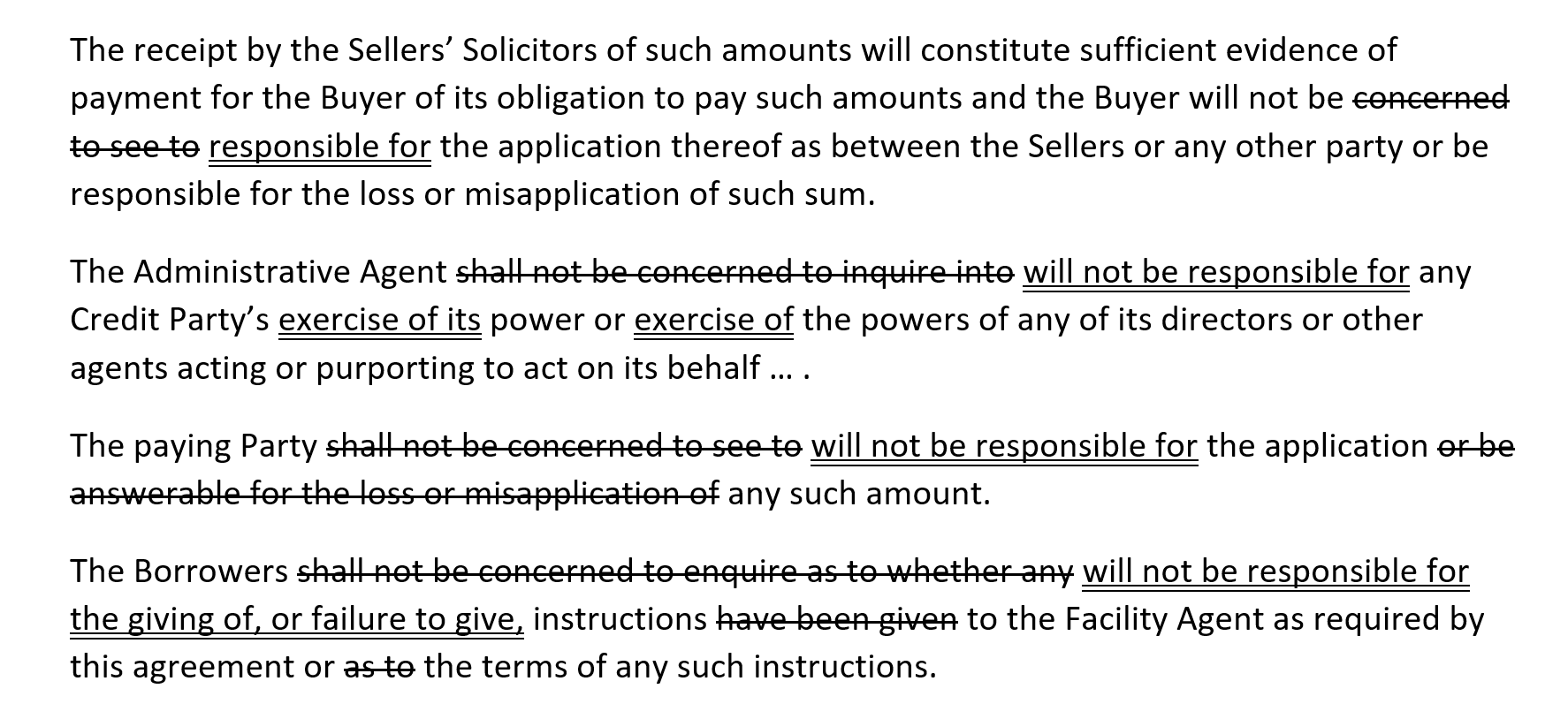[Updated 3 Jan. 2022]
It could be gratifying when no one notices that I’ve screwed something up. No egg on my face! But instead, it’s a little disconcerting. No one cares! Or Serious egg on my face later, when I repeat the mistake in print!
In the original version of this post (published in 2018), I misunderstood entirely the usage in question. Here’s my new, shorter, hopefully not-screwed-up version.
***
The phrase shall not be concerned to see to and the phrase shall not be concerned to enquire into occur in Commonwealth drafting. One sees variants that use will instead of shall, that use the simple present tense (is not concerned), that use just see instead of see to, that combine see to and enquire into, and that use inquire instead of enquire.
Whatever the variants, all such phrases are obscure. A far simpler alternative would be will not be responsible for:
***
[Here’s the original, screwed-up 2018 version of this post. Do not read, unless you’re looking for material to use in mocking me!]
Yesterday one of my consulting clients introduced me to shall not be concerned to see (or enquire into). My response was, You cannot be serious. The components of this usage have no bearing on the meaning sought to be conveyed.
Here are some instances I found roaming the post-apocalyptic EDGAR landscape:
Payment in accordance with this clause shall be a good and valid discharge of the Buyer’s obligation to pay the sum in question and the Buyer shall not be concerned to see the application of the monies so paid.
… and the receipt of each such amount in the Designated Account shall be an absolute discharge to the Purchaser of the obligation to pay such amount and the Purchaser shall not be concerned to see to the application of any such amount thereafter.
The Guarantee Beneficiaries shall not be concerned to see or enquire into the powers of the Borrower, any other Material Subsidiary or any of their directors, officers or agents acting or purporting to act on their behalf …
The Borrowers shall not be concerned to enquire as to whether any instructions have been given to the Facility Agent as required by this agreement or as to the terms of any such instructions.
Use of enquire instead of inquire is a clue as to the origin of shall not be concerned to see: evidently it’s an English creation! It serves as a reminder that although the English legal profession has in general managed to purge contracts of more witless usages than we in the United States have, they still have work to do. (Also, there’s the awkward business of endeavours, which I discuss here.)
Saying that Acme shall not be concerned to see X serves to have Acme acknowledge that it won’t have any basis for asserting X. A sensible alternative would be using will not be required to. For example, the first example above could be rewritten to say The Sellers will not be required to show how they applied the amount paid. But it might be that the issue in question is sufficiently obvious that you can omit it entirely.


Ken:
Funny how English is different from American. For me, the natural meaning of the words was “Acme shall not worry if it sees this,” which would be a very odd thing to say in a contract.
Chris
MSCD groups language of lack of duty and language of limit of duty with language of discretion and suggests the formula ‘is not required to’ (and rejects my beloved ‘need not’).
Generally, there’s no need for a contract to point out that parties need not do things the contract does not require them to do.
But pointing out unrequired things is sometimes a way of drawing boundaries around duties: ‘Acme shall secure the marina against storm damage by reasonable efforts, but need not expend more that $10,000 in labor and materials securing the marina against any single storm’.
As for the “shall not be concerned” formulation, I agree with Chris Lemens that it’s comical. To me, it sounds like ‘and what the seller does with the purchase price is none of the buyer’s business’. Who said it was? Why is this in the contract? Ken is right that those questions need to be asked.